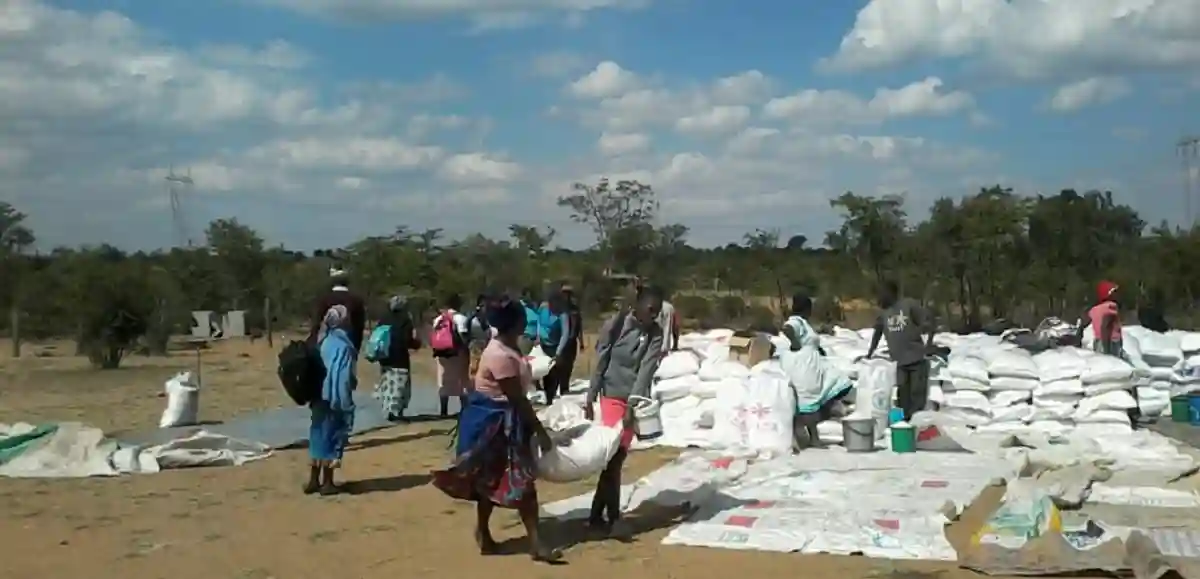The Zimbabwe Peace Project (ZPP) says political discrimination in the distribution of government food aid has been used as a tool to manipulate vulnerable populations, exacerbating systemic human rights violations.
This finding was revealed in ZPP’s October 2024 monthly monitoring report, as the nation grapples with a severe El Niño-induced drought.
Rural areas are receiving grain, while urban areas are receiving cash assistance. However, ZPP documented 13 cases of politicised aid distribution, where food aid was used to benefit ZANU PF supporters, exposing the party’s control over food allocation systems.
According to ZPP, the 13 documented cases are just a small fraction of the widespread political abuse occurring in the distribution of food aid across the country. Reads the report in part:
The ruling party’s control over food aid allows it to weaponise hunger, denying assistance to opposition supporters and targeting perceived dissenters.
ZPP said the practice of politicising food aid violates international human rights laws that protect the right to food and freedom from discrimination.
Rural communities, already struggling with poverty and drought, face coercion to support the ruling party; failure to comply can result in denial of essential aid.
Reports indicate incidents of forced participation in ruling party activities and public renunciation of opposition ties as prerequisites for accessing food aid.
The report also says in Silobela’s Ward 23, a man was denied aid after questioning the political nature of a meeting.
Traditional leaders are also involved, as many are pressured to align with the ruling party, compromising their role as neutral community guardians.
The Zimbabwe Peace Project (ZPP) documented cases in Manicaland where traditional leaders and local politicians hoarded food aid, diverting resources from those in need.
In Buhera South’s Ward 24, a councillor allegedly diverted 40 bags of maize intended for the elderly, selling some at night and giving the rest to unqualified relatives.
The politicization of food aid worsens existing inequalities, erodes trust, and puts marginalized groups—especially women, children, and persons with disabilities—at greater risk. Said ZPP:
This insidious manipulation of food aid perpetuates a culture of fear, repression, and impunity. It undermines Zimbabwe’s democratic foundations and the fundamental human rights of its citizens, perpetuating poverty and deepening inequality.
More: Pindula News

